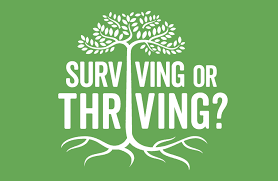80% of respondents to Deloitte’s Global Human Capital Trends survey identified well-being as an important or very important priority for their organisation’s success, making it the top-ranked trend for importance.
It’s hardly surprising that after a year of a global pandemic, many people feel stressed, anxious, drained and demotivated.
I spend most of my days supporting employees with aspects of their personal life outside of work, so that they are able to be more productive and less stressed whilst they are at work. Our personal and professional lives have become more intertwined than ever before. Creating a culture of open communication and a safe space where employees feel able to share their feelings and challenges, is crucial to be able to show up at work every day as your whole self.
Despite the challenges of the past year, I really hope an ongoing benefit will be an awareness of how important mental health is (not just during Mental Health Awareness Week) and a new found willingness and honesty to share emotions. During the pandemic, people have been much more transparent about how they are feeling, so going forward when you ask someone how they are, take the time to really listen to their answer. If they say “fine” but don’t look it, ask again “No really, how are you?”
Leaders create the atmosphere and tone and need to be the champions of well-being and mental health. They also act as crucial role models, so for those in more senior positions think about actively taking lunch breaks, having realistic expectations, creating boundaries, not sending emails out in the middle of the night etc.
Mental health is constantly changing but can be seen to run on a spectrum from very low and depressed to thriving. Most of us do not sit at either end, however just because we don’t officially have symptoms of mental illness that does not mean we aren’t struggling. I read a fascinating article recently that referred to the term ‘languishing’. It is not a feeling of total hopelessness and despair but a general absence of well-being. It just feels like we are getting by and perhaps lacking motivation and the ability to focus. The long emotional toll of living through a pandemic for over a year, may mean that languishing has been a very common emotion.
As we slowly head into our new post-pandemic world, the next few months are a golden opportunity to facilitate change. We are no longer in the depths of lockdown but do we want to bounce straight back to our ‘normal’ lives and old routines? We need to consciously think about our behaviour and continue to ensure that the empathy and compassion colleagues have shown towards each other this past year, is not just a nice-to-have but regarded as essential. If not it will only take a matter of weeks before we slip back to former habits.
How can you effectively support others?
When you can see a family member, friend or colleague who seems to be struggling with their mental health, you can feel afraid to say or do the wrong thing. You are not expected to be a mental health professional or come up with solutions. If someone has the courage to open up and share their feelings, the most powerful thing you can do is simply respond with empathy. Use reflective or active listening to respond without judgement, blame, criticism, or even advice. Don’t even try to make them feel better, as this can be seen as not listening and being dismissive, even when you have the best intentions. In the moment that person just needs to feel heard and understood. That is how you build trust and connection and help them to feel safe and supported. What is shareable becomes bearable.
We need to continue to focus on mental wellbeing, not just physical, make it a priority and acknowledge what people are going through with trust, transparency and open communication. Emotions need motion to move through us. If we can share them and name them, we can tame them.

